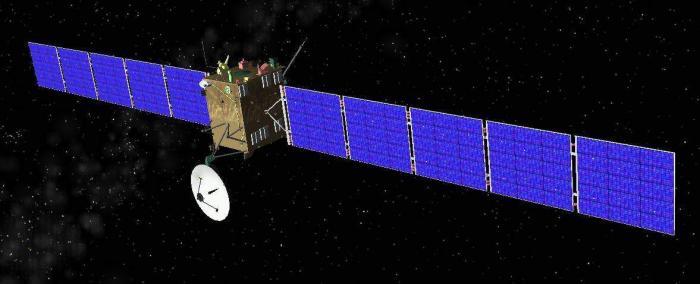We probably know more about space than about the mind of a website visitor

The excitement and achievement of the landing of a space vehicle on the surface of a 4km wide comet, 300m miles away from us probably brought a tear to many eyes. The sheer technical ability of being able to make this immense task happen is something that deserves the often overused word, awesome. One scientist said it was the equivalent of sending a firework up into the sky in London and landing it on the head of a pin, rotating at 35,000 miles an hour, in the middle of Delhi. It takes some doing…!
Meanwhile, back on Planet Earth, other teams of scientists are busy trying to unscramble the inner depths of the human brain. We think we know a lot; in reality we know very little. Each time we think we have made progress along comes another bit of data to suggest that all is not what it seems inside the workings of the human brain. Plus, much of the research thus far is on relatively small numbers of people, often psychology or medical students, meaning that the sample is self-selected and very bright. True, there are studies of diseased brains and the inner workings of people with psychological conditions, but the numbers are small and the findings often conflicting,
Yet, with some certainty you find plenty of people telling you we “know ” how the brain works, that we “know” exactly where the “speech centre” is, or where vision is processed. Indeed we do. That is until someone has a stroke destroying those areas of the brain yet another part of the brain takes over the functions. This is called “plasticity” whereby a part of the brain can change its function into something else. It’s like your fridge suddenly turning itself into a cooker. Yet it happens every day in brains all round the world – people regain functions even when part of their brain is damaged. Sometimes it even happens without us knowing, where your brain repairs itself.
Sure we know a lot about the brain, but there is so much more we don’t know. This issue was recently tackled in an article in the New York Times which revealed that the more progress we make in understanding the human brain, the more we discover what we do not know. And there is a lot we do not know.
So, what does this mean for your website? It suggests that all the advice you get from marketing “experts” or even “Internet Psychologists” is not necessarily always going to be true. It is the best we have with our current knowledge about human behaviour. But because there is so much more to know and discover it could well be that the advice you are given is not true in your circumstances for your marketplace and the people who visit your kind of website.
That means that like the scientists who lead the Rosetta space probe project you have got to test, re-test and test again to make sure that what you do on your website matches the people you are trying to reach. Think of them as a 4km comet spinning at 35,000 miles an hour. The only way you are going to be able to hit the target is to understand it with vast amounts of testing. We don’t know enough about the human brain and mind for you to do anything else.



